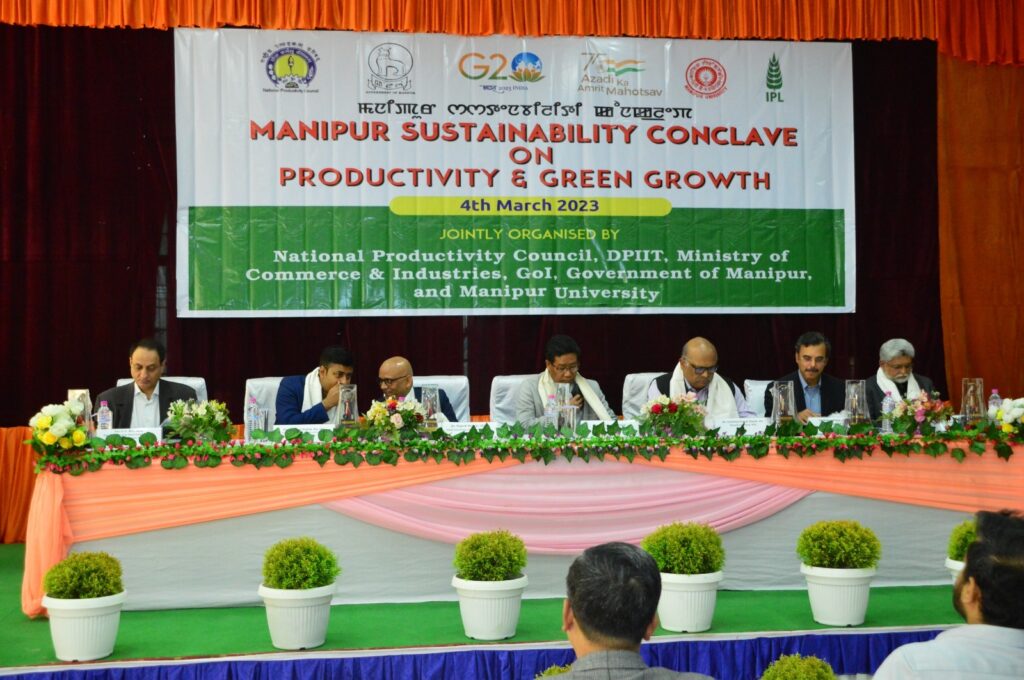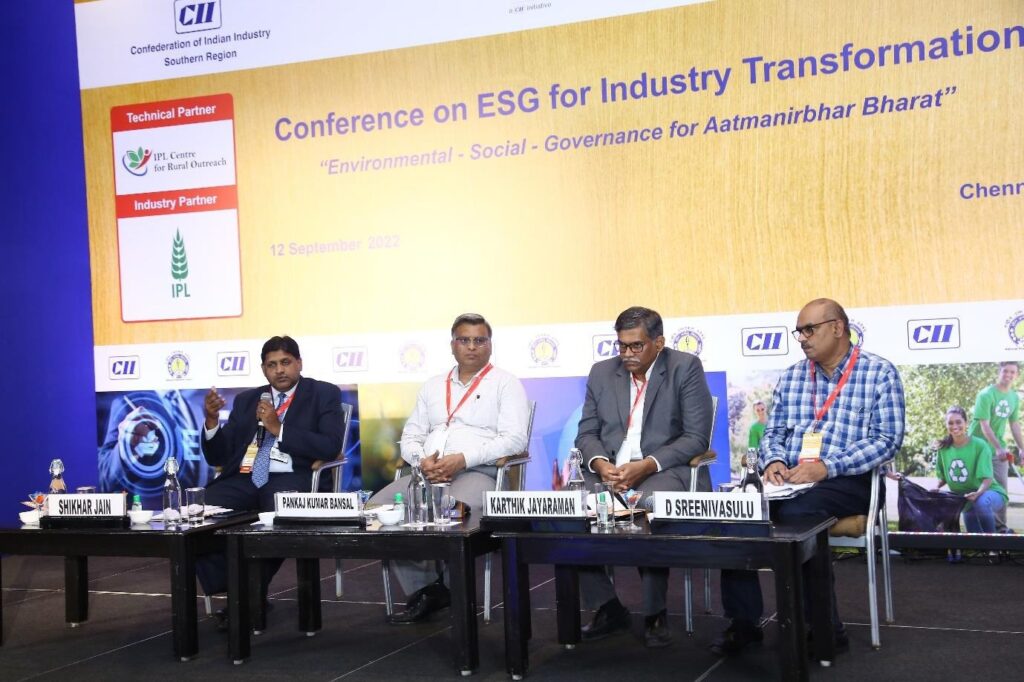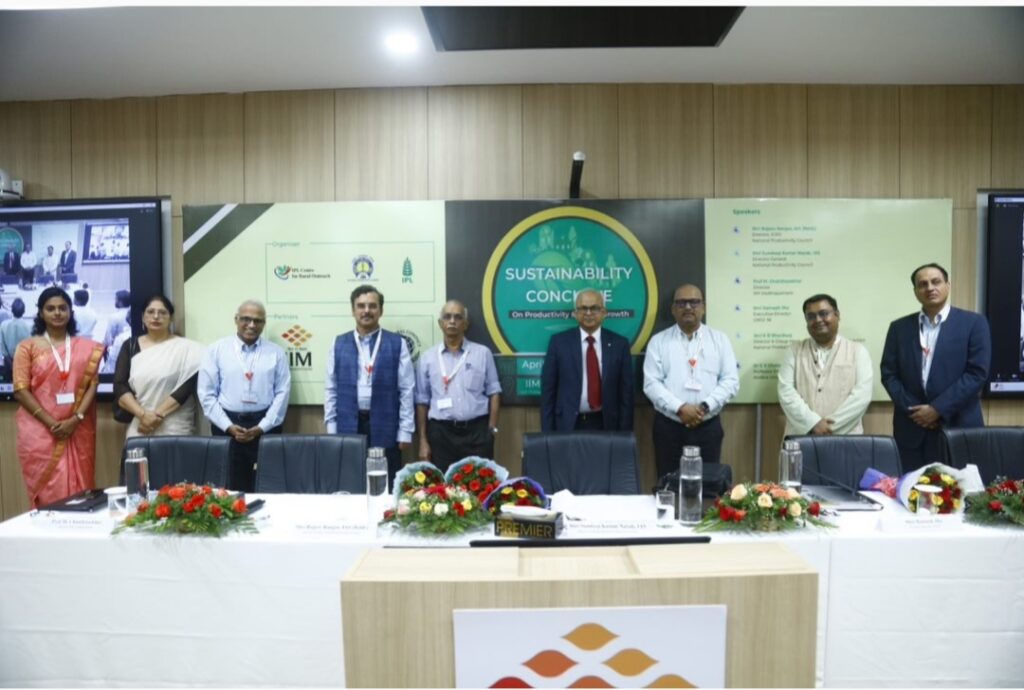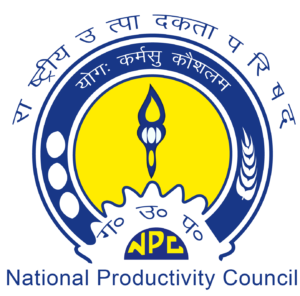ESG (Environmental Social Governance)
Sustainable Green Growth Promotion
It is well-recognized aspect of business that businesses are established to generate profits for its stake holders and that of governments is to improve welfare of the citizens. It is also well known that the permission to undertake business is granted by the governments with the consideration that the allowance of profiting will yield better welfare to citizens than without. The application of the principle “trust but verify” by various stakeholders is driving the reporting/mandating reporting requirements by businesses and governments.



The risks of climate change, resource scarcity, damage to common goods and property for businesses are drawing attention of stakeholders beyond financiers and regulators. Businesses for their continued operations and to seek investments for growth are being asked to report how these risks are being taken into cognizance and how they are addressing them to prove the investments are not at risk and to indicate the businesses perception on way forward pertaining to risks and opportunity and the basis of their thinking.
Environment-Social-Governance (ESG) reporting is increasingly becoming an accepted way to address the risks. To enable uniformity in reporting structure, to ensure right indicators and metrics are considered, to enable verification of materiality assessment of ESG aspects affecting their business across the life cycle, various governmental and non-governmental agencies are mandating/proposing guidelines/standards.
In India, the market regulator SEBI, came out with “the Business Responsibility and Sustainable Reporting (BRSR)” guidelines to make investors all over the world aware that Indian industry and governments realize the importance of these issues and how they affect not only India but nations across continents. To deliberate on this, a number of conferences were held in different locations in the country, the first of the series was organized by National Productivity Council on 12th September’2022, at Chennai, Tamil Nadu.
While the objectives of this mandate are noble, the methods of measurement, reporting and verification are in nascent stage, which are further complicated by the multi-dimensional and multi-domain knowledge requirements. On the other hand, the need to report in a manner comprehensive for all stakeholders requires development of metrics easily understandable and verifiable without the deep knowledge of experts and inter-alia expertise of various subjects.
The details of the various initiatives taken to date are given the documents attached.
Our Documentation
ESG FOR INDUSTRY TRANSFORMATION CHENNAI
To enable uniformity in reporting structure, to ensure right indicators and metrics are considered, to enable verification of materiality assessment of ESG aspects affecting theirbusiness across the life cycle, various governmental and non-governmental agencies are mandating/proposing guidelines/standards.
ESG FOR INDUSTRY TRANSFORMATION MUMBAI
Adoption of Environmental, Social & Governance (ESG) Framework by business enterprises is expected to renew industry’s commitment to achievement of sustainability and Net Zero objectives. Alignment of ESG measures with the Business Responsibility & Sustainability Reporting (BRSR) mandate of SEBI…
National Conference on ESG for Industry Transformation “Environmental – Social - Governance” for Atmanirbhar Bharat”
Sustainability Conclaves on Productivity and Green Growth organised for benefit of students, academia etc.
- Report on National Level Conference on Productivity and Sustainability 28th December, 2023
- Sardar Vallabhbhai Patel University of Agriculture and Technology, Meerut 18th January 2024
- Proceeding Report of Rajasthan Sustainability Conclave : Productivity and Green Growth Held on12 January, 2024
- Gati Shakti Vishwavidyalaya (A Central University Under The Ministry Of Railways, Government Of India) Report On Sustainability Conclave On Productivity And Green Growth
- DY Patil International University_18.01.2024
- Ganpat Univeristy 24.01.2024
- ICAR, Patna 13.02.2024
- Jaypee Univeristy 19.03.2024
- PVNRTU, Hyderabad 22.03.2024
- Manipur University at Imphal - 4.03.2023
- Business School, Goa University - 13.03 .2023
- Lady Irvin College, Delhi - 17.03.2023
- ICAR- National Research Centre on Mithun at Dimapur - 13.04.2023
- IIM Vishakhapatnam - 20.04.2023
- West Bengal Electricity Commission at Kolkata– 8.05.2023
- Mother Teresa Women's University, Kodaikanal, Tamil Nadu - 19.06.2023
- Administrative Training Institute, Government of Karnataka at Mysore - 6.07.2023
- National Research Centre on Mithunn, Nagaland



